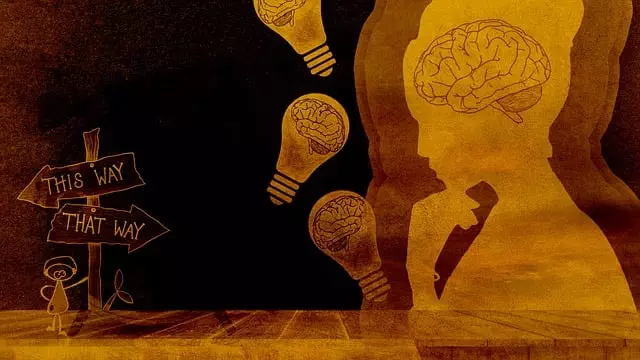The Kaiser Permanente Mental Health Access Center in Lafayette utilizes an RFM (Reach, Frequency, Engagement) analysis to personalize resilience-building programs, such as Resilience Building Exercises (RBE), for improved mental wellness. Their holistic approach, combining mindfulness meditation, community outreach, and tailored workshops, enhances well-being for diverse patients. Through multi-faceted evaluation including patient feedback, data analysis, and cultural sensitivity, the center ensures effective interventions and shares insights through the Mental Wellness Podcast Series, setting a standard for inclusive mental healthcare practices.
Resilience is a cornerstone of mental well-being, especially in today’s fast-paced world. The RFM (Resilience, Flexibility, and Mastery) model offers a structured approach to enhancing individuals’ ability to cope with stress and adversity. This article explores the implementation of RFM principles in mental health care, using Kaiser Permanente Lafayette as a case study. We’ll delve into their integrated resilience programs, design effective exercises, and discuss measuring success at the Kaiser Permanente mental health access center in Lafayette.
- Understanding RFM and its Significance in Mental Health Care
- Kaiser Permanente Lafayette: A Model for Integrated Resilience Programs
- Designing Effective Resilience-Building Exercises
- Measuring Success and Impact on Patient Outcomes at the Access Center
Understanding RFM and its Significance in Mental Health Care

At the Kaiser Permanente Mental Health Access Center Lafayette, understanding RFM (Reach, Frequency, and Engagement) is paramount in delivering effective mental health care services. RFM analysis helps identify individuals who are actively engaged with mental health support, those who may be at risk of disengaging, and those who require targeted interventions. By segmenting patients based on their RFM scores, healthcare providers can tailor programs and exercises that foster resilience and coping skills development. This personalized approach ensures that each patient receives the right support at the right time, enhancing mental wellness outcomes.
The implementation of Resilience Building Exercises (RBE) is a strategic component within this framework. These exercises focus on Stress Reduction Methods, designed to help individuals manage and reduce symptoms of stress, anxiety, and depression. By integrating RBEs into care plans, the center aims to strengthen patients’ ability to cope with challenges, promote positive mental health, and ultimately improve their overall well-being. Such initiatives reflect a holistic view of mental healthcare at Kaiser Permanente Mental Health Access Center Lafayette, where resilience is nurtured as a key pillar for long-term mental wellness.
Kaiser Permanente Lafayette: A Model for Integrated Resilience Programs

Kaiser Permanente Lafayette stands as a beacon of integrated resilience programs within the healthcare sector. This Mental Health Access Center has pioneered innovative strategies to enhance mental well-being among its diverse patient population. By seamlessly integrating mindfulness meditation practices into their care model, Kaiser Permanente Lafayette offers holistic solutions tailored to individual needs. The center’s approach extends beyond traditional therapy; they actively engage the community through targeted outreach programs, fostering a supportive environment that addresses systemic barriers to mental health services.
Their success lies in a comprehensive strategy that includes Mindfulness Meditation as a core component, alongside robust Community Outreach Program Implementation. This holistic view has led to improved patient outcomes and increased accessibility to mental healthcare. Furthermore, Kaiser Permanente Lafayette’s efforts have inspired a Mental Health Policy Analysis and Advocacy focus, encouraging other institutions to adopt similar inclusive practices, ultimately contributing to a more resilient and supportive community fabric.
Designing Effective Resilience-Building Exercises

Designing Effective Resilience-Building Exercises plays a pivotal role in enhancing mental well-being, especially for individuals navigating challenging circumstances. The Kaiser Permanente Mental Health Access Center in Lafayette recognizes this and offers tailored programs to empower people with coping strategies. These exercises are meticulously crafted to cater to diverse needs, ensuring accessibility and relevance for all participants.
Effective resilience-building workshops, such as those conducted by the Center, often incorporate a blend of interactive activities, group discussions, and evidence-based Stress Management Workshops Organization techniques. Mental Health Education Programs Design tailored to specific demographics or age groups can significantly impact their effectiveness. By integrating various Stress Reduction Methods, these sessions foster an environment where individuals learn to manage stress, build resilience, and cultivate a sense of emotional agility, ultimately enhancing their overall quality of life.
Measuring Success and Impact on Patient Outcomes at the Access Center

At the Kaiser Permanente mental health access center Lafayette, measuring the success and impact of Resilience Building Exercises (RFM) is paramount to understanding their effectiveness in enhancing patient outcomes. The center employs a multi-faceted approach, combining qualitative feedback from patients and healthcare providers with quantitative data analysis. This comprehensive strategy allows for a nuanced view of how RFM initiatives influence not only individual resilience but also the overall well-being of the community served by the access center.
The integration of Cultural Sensitivity in Mental Healthcare Practice is a key component of this assessment. By ensuring that the RFM exercises resonate with diverse cultural backgrounds and personal experiences, the access center aims to foster meaningful engagement and optimize positive patient outcomes. Additionally, Trauma Support Services play a vital role in the measurement process, as they help identify areas where RFM can further support individuals dealing with complex trauma histories. This holistic evaluation extends beyond numerical metrics, delving into the lived experiences of patients through the production of a Mental Wellness Podcast Series, which shares real-life stories and provides valuable insights into the impact of these interventions.
The implementation of RFM (Resilience, Flexibility, and Mastery) programs, as exemplified by Kaiser Permanente’s successful model in Lafayette, holds immense potential for enhancing mental health care. By integrating resilience-building exercises tailored to individual needs, healthcare providers can significantly improve patient outcomes. This approach not only equips individuals with coping mechanisms but also fosters a sense of control and well-being. As demonstrated at the Kaiser Permanente mental health access center in Lafayette, these initiatives can revolutionize care, making it more accessible, effective, and empowering for patients navigating their mental health journeys.






